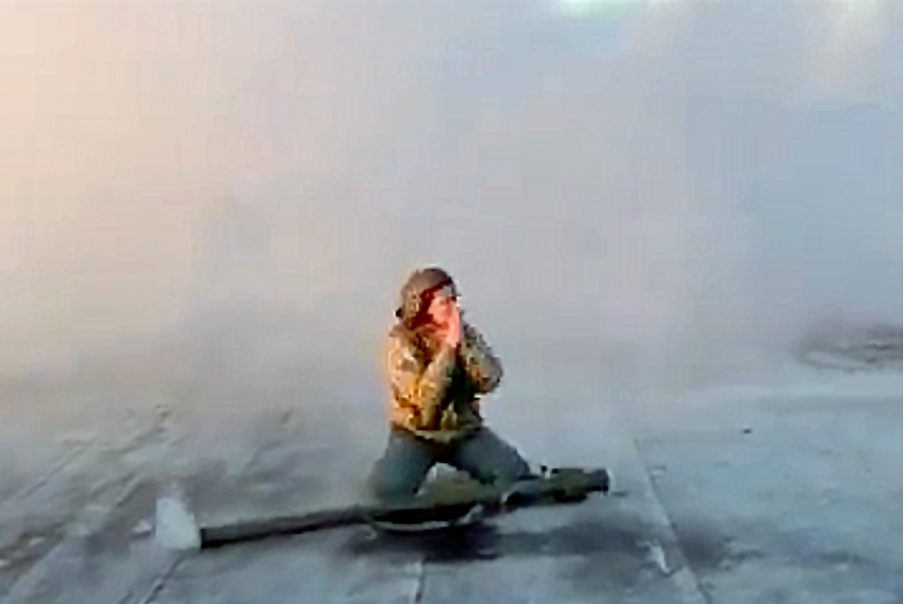The Financial Times reported Wednesday that the Russian Central Bank is forecasting a drop of nearly four percent in the country’s GDP after this year, blaming labor shortages and the increasing effects of Western sanctions.
The International Monetary Fund issued a report with similar projections, echoing observations that government and private consumer demand has outpaced supply for most goods.
JOIN US ON TELEGRAM
Follow our coverage of the war on the @Kyivpost_official.
The central bank expects growth will slow to the 0.5 percent to 1.5 percent of GDP range in 2025, and one to two percent in 2026, down from the current four percent, approximately.
“Available production capacity is depleted,” bank deputy governor Alexei Zabotkin told a press conference last week. “The pace of expansion is held back by sanctions barriers and physical limitations on the output of the means of production. The economy needs additional labor for this as well.”
After a year of overheating growth, Moscow’s economists noted, the loss of almost a million Russians who fled the country, and the commission of more than a million workforce-aged men into the armed forces puts the labor market in a tough spot for 2025. Meanwhile, Western sanctions on imported goods have slowed production further.
The bank’s report said the labor supply is “nearly used up.”
As a result, wages jumped some 19.2 percent in the first quarter of 2024, as companies try to acquire employees from a shrinking labor pool, which is especially meager in the manufacturing sector.

Psychological War, Intercontinental Ballistic Threat: Russia’s Latest Move Against Ukraine
In a tell-tale sign this week, Moscow was advertising an annual salary of up to $54,000 for new military conscripts. The government’s ads, which reached hundreds of thousands of users, emphasize lucrative payments for enlisting – a one-time payment of 2.3 million rubles ($24,000) and an annual income of 5.2 million rubles ($54,000).
Last month, Washington aggressively expanded its set of sanctions on Russia to help ensure that suppliers of components to Moscow’s war machine and manufacturing at large no longer slipped through the cracks.
Biden administration goes after Russian media for US election interference
On Wednesday, US President Joe Biden’s administration added additional sanctions on Russia via the Treasury Department, in this case, to crack down on disinformation from Moscow-controlled media in the run-up to US elections in November.
BREAKING: Biden administration to hit Russia with sanctions for trying to manipulate U.S. opinion ahead of the election. pic.twitter.com/hLFixHTzRX
— MSNBC (@MSNBC) September 4, 2024
US Attorney General Merrick Garland announced the indictment of two employees of Russian state-funded outlet RT (formerly Russia Today) and imposed sanctions on some of its top editors. The indicted individuals were charged with election interference, allegedly funneling millions of dollars to US social media influencers who were paid to do the Kremlin’s bidding.
“We have no tolerance for attempts by authoritarian regimes to exploit our democratic system of government,” Garland said at a meeting of the Justice Department’s Election Threats Task Force.
“We will be relentlessly aggressive in countering and disrupting attempts by Russia and Iran, as well as China or any other foreign malign actor, to interfere in our elections,” he said in televised remarks.
AFP reported that the 10 individuals and two entities sanctioned by the Treasury include RT editor-in-chief Margarita Simonyan and deputy Elizaveta Brodskaia. Simonyan was a “central figure in Russian government malign influence efforts,” the Treasury alleged, while Brodskaia “reported to Russian President Vladimir Putin and other government officials.”
The two indicted RT employees, Kostiantyn Kalashnikov and Elena Afanasyeva, have been charged in New York for money laundering and violating the Foreign Agents Registration Act, AFP noted. They stand accused of funneling about $10 million to a Tennessee-based company that used social media influencers “to create and distribute content to US audiences with hidden Russian government messaging,” Garland said.
He said that the propaganda was “created by the Kremlin to reduce international support for Ukraine, bolster pro-Russian policies and interests, and influence voters in the United States.”
The indictment reads that none of the contracted influencers disclosed that the content (distributed on Instagram, TikTok, YouTube and X) was paid for by the Kremlin and that they did not identify themselves in any way as agents of a foreign government.
RT released a statement mocking in the allegations, writing facetiously, “Three things in life are inevitable: death, taxes and ‘RT’s interference in American elections’.”
Emergency crews still combing debris of Poltava school, 13 feared trapped under rubble
Emergency workers in Poltava continue to search the rubble of a military academy after Russian air strikes on Tuesday killed more than 50 people there, and wounded 271, and where 13 people may be stuck under the debris still.
“Up to 13 people may be trapped under the rubble of a six-story educational building. So far, 800 tons of debris have been removed from the site of the attack,” Svitlana Rybalko, spokesperson for the regional branch of the State Emergency Services, told public broadcaster Suspilne.
She added that the death toll from the strike has risen to 53 from 51. So far, 22 bodies had been retrieved from under the rubble, and 13 are feared still trapped.
Wednesday marked the first day of three days of national mourning for the Poltava victims, the same day that continued Russian air strikes killed seven civilians, including three children, in the western city of Lviv.
Rescuers in Lviv have recovered the body of a 9-year-old girl from beneath the rubble.
— Ihor Lachenkov (@igorlachenkov) September 4, 2024
The world needs to witness this tragedy.#LetUkraineStrikeBack pic.twitter.com/bfAkLTMTA1
Meanwhile, Moscow’s barrage of air strikes on Ukraine’s northeastern border have injured seven more civilians in the Sumy region. The region’s military administration said in a release that Russian munitions hit targets in Sumy 52 times on Wednesday, including the use of guided aerial bombs and strikes from a multiple-launch rocket system.
In total, 149 explosions were heard in the territory, state news outlet Ukrinform reported.
You can also highlight the text and press Ctrl + Enter









